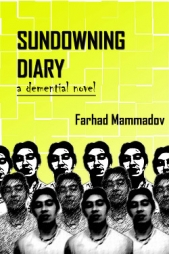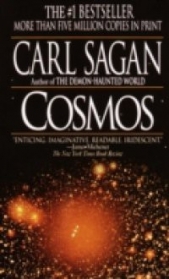[New Sun 04] The Citadel of the Autarch
![[New Sun 04] The Citadel of the Autarch](/uploads/posts/books/no-cover.jpg)
[New Sun 04] The Citadel of the Autarch читать книгу онлайн
Внимание! Книга может содержать контент только для совершеннолетних. Для несовершеннолетних чтение данного контента СТРОГО ЗАПРЕЩЕНО! Если в книге присутствует наличие пропаганды ЛГБТ и другого, запрещенного контента - просьба написать на почту [email protected] для удаления материала
Some make pets of animals, and some befriend children left homeless by the struggle.”
Remembering Casdoe’s son, I said, “I can see why you object to that.”
“We do not Object—most certainly not to that, and not to things vastly less natural. I am only speaking of the instinct to exercise authority. In the bad uncle it made him love a woman, and specifically one who already possessed a child, so there would be a larger family for him as soon as there was a family for him at all. In that way, you see, he would have regained some part of the time he had lost.”
She paused, and I nodded.
“Too much time, however, had been lost already; the instinct broke out in another way. He saw himself as the rightful master of lands he only held in trust for one brother, and the master of the life of the other. That vision was delusive, was it not?”
“I suppose so.”
“Others can have visions equally deluding, though less dangerous.” She smiled at me. “Do you regard yourself as possessing any special authority?”
“I am a journeyman of the Seekers for Truth and Penitence, but that position carries no authority. We of the guild only do the will of judges.”
“I thought the torturers’ guild abolished long ago. Has it become, then, a species of brotherhood for lictors?”
“It still exists,” I told her.
“No doubt, but some centuries ago it was a true guild, like that of the silversmiths. At least so I have read in certain histories preserved by our order.”
As I heard her, I felt a moment of wild elation. It was not that I supposed her to be somehow correct. I am, perhaps, mad in certain respects, but I know what those respects are, and such self-deceptions are no part of them. Nevertheless, it seemed wonderful to me—if only for that moment—to exist in a world where such a belief was possible. I realized then, really for the first time, that there were millions of people in the Commonwealth who knew nothing, of the higher forms of judicial punishment and nothing of the circles within circles of intrigue that ring the Autarch; and it was wine to me, or brandy rather, and left me reeling with giddy joy.
The Pelerine, seeing nothing of all this, said, “Is there no other form of special authority that you believe yourself to possess?”
I shook my head.
“Miles told me that you believe yourself to possess the Claw of the Conciliator, and that you showed him a small black claw, such as might perhaps have come from an ocelot or a caracara, and that you told him you have raised many from the dead by means of it.”
The time had come then; the time when I would have to give it up. Ever since we had reached the lazaret, I had known it must come soon, but I had hoped to delay it until I was ready to depart. Now I took out the Claw, for the last time as I thought, and pressed it into the Pelerine’s hand, saying, “With this you can save many. I did not steal it, and I have sought always to return it to your order.”
“And with it,” she asked gently, “you have revived numbers of the dead?”
“I myself would have died months ago without it,’ I told her, and I began to recount the story of my duel with Agilus.
“Wait,” she said. “You must keep it.” And she returned the claw to me. “I am not a young woman any longer, as you see. Next year I will celebrate my thirtieth anniversary as a full member of our order.
At each of the five superior feasts of the year, until this past spring, I saw the Claw of the Conciliator when it was elevated for our adoration. It was a great sapphire, as big around as an orichalk. It must have been worth more than many villas, and no doubt it was for that reason that the thieves took it.”
I tried to interrupt her, but she silenced me with a gesture. “As for its working miraculous cures and even restoring life to the dead, do you think our order would have any sick among us if it were so? We are few—far too few for the work we have to do. But if none of us had died before last spring, we would be much more numerous. Many whom I loved, my teachers and my friends, would be among us still. Ignorant people must have their wonders, even if they must scrape the mud from some epopts boots to swallow. If, as we hope, it still exists and has not been cut to make smaller gems, the claw of the Conciliator is the last relic we possess of the greatest of good men, and we treasured it because we still treasure his memory. If it had been the sort of thing you believe yourself to have, it would have been precious to everyone, and the autarchs would have wrested it from us long ago.”
“It is a claw—” I began.
“That was only a flaw at the heart of the jewel. The Conciliator was a man, Severian the Lictor, and not a cat or a bird.” She stood up.
“It was dashed against the rocks when the giant threw it from the parapet—”
“I had hoped to calm you, but I see that I am only exciting you,” she said. Quite unexpectedly she smiled, leaned forward, and kissed me. “We meet many here who believe things that are not so. Not many have beliefs that do them as much credit as yours do you. You and I shall talk of this again some other time.”
I watched her small, scarlet-clad figure until it was lost from sight in the darkness and silence of the rows of cots. While we talked, most of the sick had fallen asleep. A few groaned. Three slaves entered, two carrying a wounded man on a litter while the third held up a lamp so they could see their way. The light gleamed on their shaven heads, which were covered with sweat. They put the wounded man on a cot, arranged his limbs as though he were dead, and went away.
I looked at the Claw. It had been lifelessly black when the Pelerine saw it, but now muted sparks of white fire ran from its base to its point. I felt well—indeed, I found myself wondering how I had endured lying all day upon the narrow mattress; but when I tried to stand my legs would hardly hold me. Afraid at every moment that I would fall on one of the wounded, I staggered the twenty paces or so to the man I had just seen carried in.
It was Emilian, whom I had known as a gallant at the Autarch’s court. I was so startled to see him here that I called him by name.
“Thecla,” he murmured. “Thecla ...”
“Yes. Thecla. You remember me, Emilian. Now be well.” I touched him with the Claw.
He opened his eyes and screamed.
I fled, but fell when I was halfway to my own cot. I was so weak I don’t believe I could have crawled the remaining distance then, but I managed to put away the Claw and roll beneath Hallvard’s cot and so out of sight.
When the slaves came back, Emilian was sitting up and able to speak—though they could not, I think, make much sense of what he said. They gave him herbs, and one of them remained with him while he chewed them, then left silently.
I rolled from under the cot, and by holding on to the edge was able to pull myself erect. All was still again, but I knew that many of the wounded must have seen me before I had fallen. Emilian was not asleep, as I had supposed he would be, but he seemed dazed. “Thecla,” he murmured. “I heard Thecla.
They said she was dead. What voices are here from the lands of the dead?”
“None now,’ I told him. “You’ve been ill, but you’ll be well soon.”
I held the Claw overhead and tried to focus my thoughts on Melito and Foila as well as Emilian-on all the sick in the lazaret. It flickered and was dark.
IX. Melito’s Story—The Cock, the Angel,and the Eagle
“ONCE NOT VERY long ago and not very far from the place where I was born, there was a fine farm. It was especially noted for its poultry: flocks of ducks white as snow, geese nearly as large as swans and so fat they could scarcely walk, and chickens that were as colourful as parrots. The farmer who had built up this place had a great many strange ideas about farming, but he had succeeded so much better with his strange ideas than any of his neighbours with their sensible ones, that few had the courage to tell him what a fool he was.























